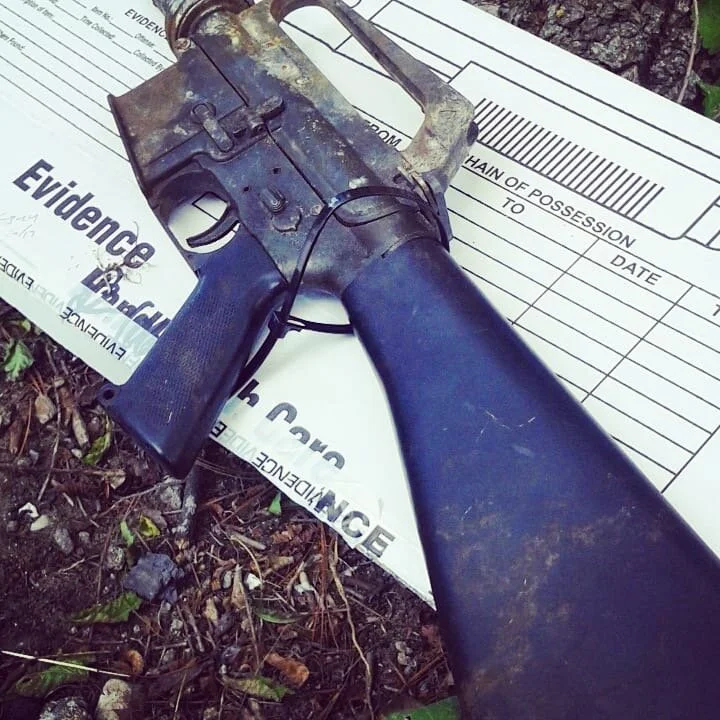Metal Detecting Code of Ethics
State, federal, and local governments have passed many laws that intentionally or incidentally impact metal detectorists and the hobby. The goal of these laws is to protect sensitive archaeological sites and public lands, which is why anyone participating in the hobby of metal detecting should incorporate a code of ethics.
Though lawmakers aren’t specifically out to obstruct hobbyists, legislation often impacts excavation and removal of any objects, which are vital roles when treasure hunting.
**DISCLAIMER - As an Amazon Associate I earn from qualifying purchases. The links in the article are affiliate links that help support this blog and my channels. Metal Detecting Life is supported by you, the readers! When you purchase something I recommend via my links, I may get an affiliate commission (terms of service) — but it never affects the price you pay. Cheers!
Be sure to take time before going out and exploring by finding out what legal jurisdiction an area falls under and what permissions you will need in order to discover and recover items, this way you won’t be forced to leave your treasure behind.
As part of the metal detecting code of ethics, research the rules regarding digging tools and respect any restrictions in your area.
Not filling in your holes becomes unsightly, dangerous to people and livestock, and are often the number one reason that will impact a municipalities decision whether or not to allow the continued use of a metal detector as well as everyone’s ability to enjoy this great hobby.
Code of Ethics
In order to protect our hobby, it’s important to follow the metal detecting code of ethics:
1. Follow all local, state, and federal laws related to metal detecting.
2. Respect a land owner’s private property and never metal detect an area without permission.
3. Take out what you take in, and properly dispose of any trash you find or dig.
4. Never tamper with structures or signage to enter an area.
5. Fill in every hole you dig. Leave no trace.
6. Never dig in a way that harms vegetation, wildlife, or changes any natural features.
7. Report any significant historical artifacts to local authorities and do not damage them if found.
8. Be an ambassador for the hobby by being courteous and thoughtful at all times.
Federal Laws
Photo Credit: Sasun Bughdaryan - Unsplash
U.S. law includes a number of legislative acts that affect how federal lands are enjoyed and impacted. These acts impact metal detecting because finds typically must be excavated. Even if they are just below the surface, some amount of digging is usually required.
The 1906 American Antiquities Act gave the President the power to make federal lands protected sites. Its intention was to stop the disturbance of prehistoric Native American grounds and ruins by the day’s treasure seekers, who were known as pot hunters because shards of pottery were prized finds at the time.
Lands described under the power of this act could no longer have artifacts removed freely because excavation of antiquities from such lands would require a permit. Known and marked historical sites, historical parks, and historical monuments are typically off limits to all metal detecting and treasure hunting.
The 1966 National Historic Preservation Act is a far-reaching work of preservation by the federal government, intended to protect historical and archaeological sites.
This created the National Register of Historic Places and although initially focused on structures, this act also impacts rural areas that may have historical significance and further promotes the stringent preservation and cataloging of Native American cultural items.
The 1997 Archaeological Resources Protection Act further governs any excavation on federal and Native American lands and controls the removal of archaeological artifacts from those sites.
State Laws
Laws vary from state to state, but all states allow metal detecting in some form on public lands.
For example, Michigan’s Department of Natural Resources maintains a list of dozens of state parks that allow metal detecting without a permit. These spots include popular beaches, fields, and forested areas but exclude all protected archaeological sites.
However, various pre-approved parks still are limited by additional criteria, such as “parking lot, picnic area, swim area, and trail surfaces” for example. Any detecting that happens outside these neatly drawn lines may still be open to metal detecting, but may require an additional permit. Ask the nearest park office or inquire at the closest office about detecting possibilities and obtaining a permit if unclear.
Other states may have further, diverse restrictions, so be sure to do your due diligence before detecting on public lands.
Private Property
Photo Credit: Scott Webb- Unsplash
Private property will yield the most freedom for detectorists. To promote the best possible community relations, metal detector hobbyists should obtain written permission to hunt on private property from the land owner. Land owners deserve respect of their land and this allows treasure hunters an opportunity to showcase themselves as ethical and responsible ambassadors of the outdoors and the hobby.
When seeking an owner’s approval, explain your purpose, methods, and timeline. Having their blessing and being a good steward to the hobby will pay dividends in the long run.
Summary
Keep in mind that people will probably ask questions when they see you out metal detecting. Most will be friendly and of a curious nature. By following these guidelines you’ll set a good example for detectorists everywhere, and you might even spark someone’s interest in the hobby as well.
If you need practice on asking for permission, just start at your own home by asking your wife, husband, dad, mom, landlord, dog, or whomever you report to, to see if you can dig your own yard, because I guarantee there is at least some type of treasure waiting to be found right at your own home!
*I may earn a small commission from affiliate links in this article.














